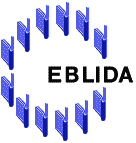

|
EBLIDA's five minutes Statement on the proposed Directive on the harmonisation of certain aspects of copyright and related rights in the Information Society
|
I am pleased to appear today on behalf of EBLIDA, the European Bureau of Library, Information and Documentation Associations that represents 95.000 libraries all over Europe. At the outset, I would like to emphasise that libraries strongly support intellectual property protection. They firmly believe that the economic and moral interests of creators must remain adequately protected in the new digital environment. However, the harmonisation of European copyright law must also ensure affordable access to information and knowledge to all.
But the new draft Directive would endanger access to information and destroy the existing balance in copyright. It would severely hamper the European Union's attempt at connecting schools and libraries to the information networks to guarantee access for all. It would also hamper the European Union's attempt at promoting lifelong learning as a basis of the information society. We greatly appreciate the initiative taken by the European Parliament's rapporteur to receive information on the shortcomings of the draft Directive, as the European Parliament is able to address the major problems of the Directive. I will stress four problems in particular:
First, the proposed Directive would not allow Member States to provide for any exceptions other than those few explicitly listed in the Directive. Member States could not, as permitted in the WIPO Copyright Treaty, "carry forward and appropriately extend into the digital environment limitations and exceptions in their national laws which have been considered acceptable under the Berne Convention".(1) In addition, the proposed Directive would leave all exceptions that are listed (except for one) purely as options to the Member States. Exceptions would be entirely unharmonised and without guarantee that they will be translated into national law to preserve a fair balance in copyright. EBLIDA shares this concern with other European associations representing European consumers; disabled persons; education and the consumer electronics industry, and therefore actively supports the European Fair Practices in Copyright Campaign (EFPICC).
Second, the draft Directive would reduce existing legal exceptions for copying for specific purposes to only two, the "illustration for teaching and scientific research". This is too narrow. Existing fair practices(2) in copying information for non-commercial private use, learning or research have nothing to do with commercial piracy. There is no reason why recognised "important values of society like research, learning and access to information"(3) should be abolished as we are entering the information society.
Third, the proposed Directive would make any circumvention of anti-copying and rights management systems unlawful, even for those with legitimate, non-infringing motives. The machine could simply block every attempt to access information without payment, and nobody would even get to the point of seeing that information let alone copy it for a specific purpose that would be excepted from copyright.
Fourth, there is no provision in the new Directive that ensures that contract law cannot override copyright law as in the Database Directive(4). All statutory exceptions could easily be ignored in contract or license agreements. In an environment where information can be monopolised, consumers and libraries could be left in a nearly impossible negotiation position, mostly being subject to rightholders' standard contracts, which could negate all exceptions.
The European Parliament can and should address these problems.
First, the Directive needs a minimum mandatory list of exceptions which takes account of the different legal traditions in the Member States by offering them the option of including, in addition, other exceptions to copyright which are traditionally authorised under national law and comply with the Berne Convention. In this way, a minimum level of harmonisation of fair practice exceptions would be ensured.
Second, the Directive needs a revised article 5.3 that permits Member States to provide for exceptions to copy for education, learning, research and private purposes which is justified by the fair practise applied in copying.
Third, the Directive needs a revised text for technological measures. This should be based on Article 11 of the WIPO Copyright Treaty(5). The circumvention of technical measures must be allowed for activities authorised by the copyright owners or permitted by law. It should only be unlawful to create a device with the clear intention to facilitate circumvention for purposes of infringement. The same applies to individuals, who should only be punished if they intentionally circumvent copyright protection systems for purposes of infringement. Furthermore the privacy of citizens must be safeguarded when using technical systems.
Fourth, the Directive needs a new article similar to Article 15 of the Database Directive that ensures that any contractual provisions contrary to the content of the exeptions in this Directive shall be null and void. It is essential that there are statutory provisions made for exceptions that are applicable in all countries of the European Union to allow access to information and copying for private, educational and research purposes that cannot be wiped off by contracts.
In closing, I want to emphasise that EBLIDA has been and is willing to contribute to the work of identifying balanced legislative solutions. What we cannot support is legislation that would regard access to information as simply a piece of merchandise, a buy-and-sell item rather than a civic right. Libraries urge the European Parliament to ensure that the draft Directive is amended in such a way that citizens can fully benefit from the Information Society and that democratic values are preserved, in the spirit of the European Parliament's Morgan-Report: "Whereas the European model of the information society must be driven by democratic, social, cultural and educational concerns and not dominated by economic and technological interest" (6).
Thank you for the opportunity to bring our concerns to this hearing. I will be happy to respond to any questions you may have.
Barbara Schleihagen
Director EBLIDA
30 June 1998
Created: 27 July 1998
Updated: 27 July 1998